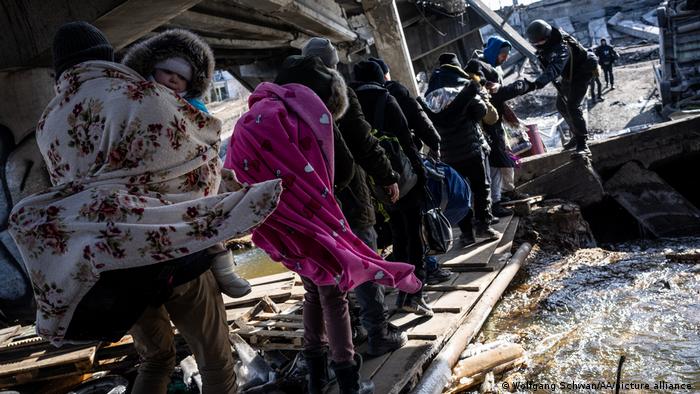
French President Emmanuel Macron and German Chancellor Olaf Scholz were holding a joint telephone call with Russian President Vladimir Putin on Saturday, the Elysee palace said.
It is the second time the pair have been in touch with the Russian leader this week.
The three leaders spoke on Thursday when both Macron and Scholz had "demanded an immediate ceasefire by Russia."
Since meeting Putin in the Kremlin on February 7, Macron has spoken by phone with the Russian leader on nine separate occasions, his office said.
Zelenksyy: Russia sending more troops
Ukrainian President Volodymyr Zelenskyy said on Saturday that Russia was sending new troops to Ukraine after suffering what he said were Moscow's biggest losses in decades.
Zelenskyy also said he had spoken to German Chancellor Olaf Scholz and French President Emmanuel Macron. The call revolved around pressuring Russia to release the mayor of the city of Melitopol, who Zelenskyy says was kidnapped by Russian forces on Friday.
Russia warns: US sanctions imminent, energy prices to soar
Russia's sanctions lists against the United States are ready and will "soon be made public," Moscow's Deputy Foreign Minister Sergei Ryabkov was reported as saying by state owned news agency TASS.
"The lists are ready, we are working on this. This is, by and large, part of the daily work," he said.
Meanwhile, the European Union faces soaring energy prices in the wake of sanctions imposed against the Kremlin over its decision to invade Ukraine, Interfax quoted a Russian foreign ministry official as saying on Saturday.
Nikolai Kobrinets said Russia was a reliable supplier of energy, but that Moscow was ready for a tough confrontation if necessary. He did not provide details of what that confrontation might entail.
The official said the situation would mean the EU would end up paying at least three times more for oil, gas and electricity.
"I believe the European Union would not benefit from this. We have more durable supplies and stronger nerves," Kobrinets told Interfax.